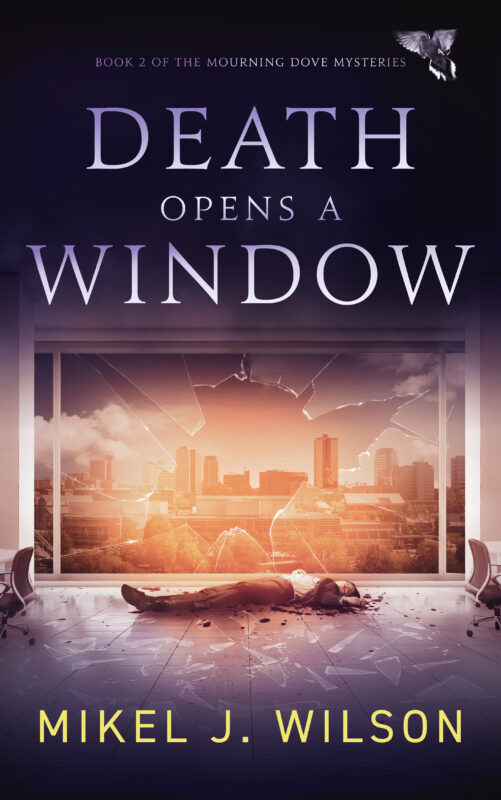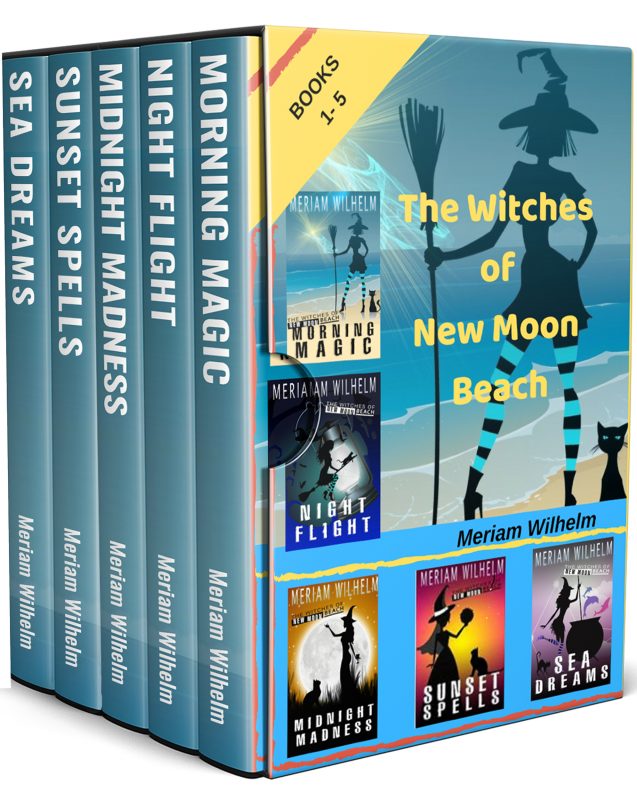The Brand Challenge; Adding Book Pages To Your Website
May 12, 2023 by Denise M. Colby in category The Writing Journey by Denise Colby tagged as Denise M. Colby, Marketing for Authors, The Brand Challenge, website marketingI talked about a brand challenge a few months back to encourage you to try something new on your website to help you build content and SEO to support your brand. In this post I’m going to dive deeper with my suggestion to add book pages to your website.

First, were you able to do anything on the list from the first brand challenge? I’d love to hear about it. Let me know in the comments below.
Whether you did or did not, let’s try again!
It doesn’t have to be a lot of something, just one thing. Sort of like taking a small bite of the elephant. You don’t need to eat the entire elephant at one time. Many successful websites were not built in one month. They started somewhere first. Then changed or added pages or content later.
Last post, I gave generalized ideas, including adding book pages on your website. For this post, I’m going to expand on this idea.
What type of book pages do you have on your website?
Similar to a blog post, having a page that is focused on one main idea, allows you to use it as a link in other content. This isn’t usually something we think about when building our website pages. Deep linking is adding links that direct the reader to a specific page, not just the front page of your website. The faster they click to the content they want, the happier they will be.
Ideas for pages on your website include a series book page and individual book pages on each book you publish. You can add where to buy for that specific book on the page, but there’s so much other content that can be connected to these pages.
Where to deep-link your book and series pages for brand building
Create a social media post or a blog post on any of the content below and include a direct link to the book or series page it represents.
- Make your characters come alive by talking about them outside of the story.
- Blog post or social media posts about the animals in your book (I have a rooster named Bert)
- Blog post or social media posts for your characters occupation
- Blog post or social media posts for the area or location in your stories (the one-room schoolhouse that was the inspiration to my story)
You can also add some of this content onto the book page itself to give additional context for your readers who choose to want to know more. It’s a way to connect with your readers or potential readers besides just the book.
Another option is to share research gathered for your stories. This could include research you weren’t able to add to your book but you’d like to share. Such when I learned about the first school-teacher who was trained from the school my heroine came from. So I wrote a blog post titled Harriet Bishop, First Public School Teacher in 1847
Frequent small steps add up over time
I know branding and dealing with your website can be challenging, I hope some of these ideas spark something for you to work with. Remember, your content doesn’t have to be perfect. It can even be something you decide to change later on.
I encourage you to do one thing on this list above to help build your brand. It may not seem much. It may seem overwhelming, or underwhelming. But if you do one thing this month, and then another thing next month. Pretty soon, you’ll have many months of blog posts and content that you didn’t have before.
Sometimes we feel this urgency to hurry up that adds extra stress we don’t need as we are busy writing our next book. I’m hoping these ideas help propel you forward in your Author career.
0 1 Read morePhoto Journal of The New York City Library
April 12, 2023 by Denise M. Colby in category The Writing Journey by Denise Colby tagged as Library, Photo Journal, TravelOn my recent trip to New York City, I made a purposeful stop at the main New York City Library. I’ve heard great things about this library and it did not disappoint. As I walked around all three floors, I found myself trying to soak up all the rich history within the walls as quickly as possible. From the high ceilings and stone steps, to the large paintings in the walls, there was a lot to marvel over.
Beautiful Infrastructure



Public Rooms
The NYC Library hosts the famous Reading Room. The Reading room was only open to those working at the time (and thus we couldn’t see in person). But the room across the hall was open and you could sit at the large tables or walk around the perimeter and look at all the paintings.





I now see that the Bill Glass Public Catalog Room is in front of the Rose Main Reading Room. Below is a picture of the Reading Room for reference (which I will have to make another trip back to see). Also included below are photos of the entrance to the Public Catalog Room, which was as far as we were allowed to go near.



Other highlights you will see as you walk around the 3rd floor include the Gutenberg Bible, large floor-to-ceiling paintings, and private room exhibits.



Outside the New York City Library
Built in 1906, this building is massive. From the Lion statues and the courtyard, to the park in the backside of the building, it’s quite a sight. If you want to learn more about how this building came to be, check out the history of the New York Public Library.





I thoroughly enjoyed our quick visit to this library. And I look forward to making a return trip some day. Thirty minutes is not enough time for anyone who is a bookworm to visit any library, let alone one as famous as the New York City Library.
4 0 Read moreUse Your Own Photos As Background Images In Your Graphics
March 12, 2023 by Denise M. Colby in category The Writing Journey by Denise Colby tagged as background images, Marketing for Authors, Social Media, Visual Content MarketingBackground images in graphics is something we don’t talk about much. Yet, when you see a social media graphic with a great quote, there most always is a graphic behind the words that helps communicate the message. So, if you plan to create your own graphics, choosing the photos you use in those graphics matter.
What to use as a background image
Nature is a popular choice, especially sunsets, sunrises, flowers, mountains or waterfalls. Images with animals are selected frequently as well, showing them all in their cute glory or in varying circumstances that can be funny or memorable. When we look at humorous posts, an image with a funny face or situation lends to the message.

The colors you use in your backgrounds is just as important. Sometimes the photo itself in the background may drive what color you use for your text in order for them to blend. But keep in mind, colors represent different things to people. Look up color choices, if interested in what emotion you want to convey in your graphics. And then choose your background image color accordingly.

I found this definition on the internet about using backgrounds in graphic design.
Backgrounds are the foundation of a successful composition. Background textures and colors create depth and contrast, allowing graphics to stand out and get noticed. Well-composed background images can help create space for you to overlay text.
Incorporating your brand in your background choices
Something to keep in mind is your brand. What is your brand? Specific colors in your brand? Do you have animals in your stories? Or what settings do you write most of your scenes? These all are ideas of what to use as background images in your graphics.
For example, if you write about cowboys, then horses and sunsets might be good options to include in your graphics. Every graphic should include your branding in some way. And think outside of the box a little bit to expand your branding content.
I found some 12 x 12 paper I liked and gave a historical look that I wanted in my background images. As I started using these to take pictures of books, bookmarks and other small items in my graphics, I liked the results.



Out of the few I first bought, I tend to use the same ones over and over because I like how the wood contrasts with all the types of images I’m creating.



If you know your brand and have a look, this is a great way to build consistency in your content. Try some things. It’s the only way to know what works and what doesn’t.
Taking your own photos and using them as background images
It’s important to note to not just find any photo off the internet. That’s actually taking someone else’s intellectual property. Instead you can find photos for free from certain apps, as well as purchase photos from several different resources.
Taking your own photos is a great way to create content. See if you can find things around you to be used as background images.

Start seeing backgrounds in the world around you
Some of this will take practice, but keeping an eye out for what you like is important. You have a brand and your brand is your style. Think about your readers, but I would focus on things that speak to you as well. A look, a vibe. All of which will come out as you build your content in your social media.
Be careful not to include anything people would be able to recognize. That’s not the point of a background image. And you don’t want something on your graphics that is someone else’s brand.
I’ve created a folder on my phone in my photos that is for background images. When I take a picture of something that I think would make a great background I save it in there so I can find it easily.
A little Disney magic in the background
One of my favorite places to find image backgrounds is Disneyland. Everything is clean and colorful and there are lots of choices available, from rock walls, boards, or the pathways. If you look around you can see things that you hadn’t noticed before, but they are part of the atmosphere. That’s what you want for your background photos. Something that blends in nicely but is clean and aestheticly pleasing.



I love going to Disneyland and taking pictures of the things around me. Disney thinks through everything, and it’s given me some great ideas for image backgrounds. Here are some additional examples:



If you zoom in close on something it can provide a completely different perspective and make the perfect background image.
I hope these examples give you some ideas for you to use in your content in the future.
Thanks for reading!
Denise M. Colby loves to write blog posts on marketing and SEO. She also loves to write about her word of the year. She creates social media graphics to highlight quotes from her word of the year. Take a look at this blog post on her 2022 word Work for additional ideas. Or the graphics created for her 2021 word Wisdom using the 12 x 12 paper mentioned above. Check out the new ones she’s created for her 2023 word Change. Or see more on her instagram or facebook pages.
0 0 Read moreLove & Romance Disney Couples Style
February 12, 2023 by Denise M. Colby in category The Writing Journey by Denise Colby tagged as Denise M. Colby, Disney, romanceI’m a Disney nerd. I love everything Disney, from the movies, the characters, to the parks. A few years ago I wrote a February post titled Dating Lessons from Wall-E. It was one of my funnest posts to write. I decided this February to try and find some other Disney couples to write about.

But first, I googled Disney Couples
Did you know there are a lot of Disney couples? I found two lists with vastly different names on them. Some had duplicates, but some did not. So I decided to create my own list. How many of these couples are you familiar with? Do you know their love story?
- Aurora & Phillip
- Snow White & the Prince
- Belle & Beast
- Wall-E and Eve
- Rapunzel & Eugene
- Anna and Kristoff
- Lady and the Tramp
- Jack Skellington and Sally
- Ella and Kit (from Cinderalla 2015)
- Meg and Hercules
- Mulan and Shang
- Ariel and Eric
Of course there are these main Disney couples
- Mickey & Minnie
- Donald & Daisy
Do you have favorites? Can you can identify which movies these couples are from? Do you know other Disney couples I need to add to my list?
Thanks for playing along with me today. If you are interested in some other Disney-related blog posts on my website, check out my Disney mugs are fun post, or my Christmas & Disney post.
0 0 Read moreMy Word for 2023 is Change
January 12, 2023 by Denise M. Colby in category The Writing Journey by Denise Colby tagged as Denise M. Colby, Word of the year, Writing GoalsMy word for 2023 is change.

Why change?
This year will be some big changes in our family. And I hope to make some changes of my own.
What type of change?
First our family changes. With our youngest in his senior year of high school, we will be done volunteering and being involved with high school activities come June. I will miss it. Supporting all the kids, cheering at choir, theater, and other events, and hanging out with other parents. Three kids and 10 years at the same school (for our 3 sons), it will be weird to say goodbye.
But with goodbye, is the opportunity to spend more time on my writing endeavors. To change my writing process, my manuscript, and my writing time. And hopefully do a little more travel and exploring with my hubby. I’m super excited about that.
Researching My 2023 Word Change
I like to explore and research my word, finding quotes and phrases that support why I chose the word I did. What I found encouraged me even more that this was the perfect word for me in 2023.
Change begins at the end of your comfort zone
Roy T. bennett
I’m at a place where I know I need to change things in my manuscript to take it to the next level. And I’m ready to do it. After a lot of work (my word in 2022), reviewing and evaluating the entire novel, I know what I need to work on. And embracing change instead of being fearful of it, is how it’s going to get done.
Here’s to a year of change!



Denise M. Colby loves to choose a new word each year and then share what she learns about it. She wrote about her 2022 word, work, in her latest blog post, and created a highlights page for her 2020 word of the year courage on her website.

Affiliate Links
A Slice of Orange is an affiliate with some of the booksellers listed on this website, including Barnes & Nobel, Books A Million, iBooks, Kobo, and Smashwords. This means A Slice of Orange may earn a small advertising fee from sales made through the links used on this website. There are reminders of these affiliate links on the pages for individual books.
Search A Slice of Orange
Find a Column
Archives
Featured Books
ALASKA INFERNO
Can a series of wildfires lead to true love under a midnight sun?
More info →DARK WINE AT THE CIRCUS
Everyone has a secret fantasy—even a rich and powerful vampire…
More info →THE WITCHES OF NEW MOON BEACH BOXED SET
A touch of witchcraft around every corner.
More info →WHAT MY FRIENDS NEED TO KNOW
Would you break the girl code for love?
More info →Newsletter
Contributing Authors
Search A Slice of Orange
Find a Column
Archives
Authors in the Bookstore
- A. E. Decker
- A. J. Scudiere
- A.J. Sidransky
- Abby Collette
- Alanna Lucus
- Albert Marrin
- Alice Duncan
- Alina K. Field
- Alison Green Myers
- Andi Lawrencovna
- Andrew C Raiford
- Angela Pryce
- Aviva Vaughn
- Barbara Ankrum
- Bethlehem Writers Group, LLC
- Carol L. Wright
- Celeste Barclay
- Christina Alexandra
- Christopher D. Ochs
- Claire Davon
- Claire Naden
- Courtnee Turner Hoyle
- Courtney Annicchiarico
- D. Lieber
- Daniel V. Meier Jr.
- Debra Dixon
- Debra H. Goldstein
- Debra Holland
- Dee Ann Palmer
- Denise M. Colby
- Diane Benefiel
- Diane Sismour
- Dianna Sinovic
- DT Krippene
- E.B. Dawson
- Emilie Dallaire
- Emily Brightwell
- Emily PW Murphy
- Fae Rowen
- Faith L. Justice
- Frances Amati
- Geralyn Corcillo
- Glynnis Campbell
- Greg Jolley
- H. O. Charles
- Jaclyn Roché
- Jacqueline Diamond
- Janet Lynn and Will Zeilinger
- Jaya Mehta
- Jeannine Atkins
- Jeff Baird
- Jenna Barwin
- Jenne Kern
- Jennifer D. Bokal
- Jennifer Lyon
- Jerome W. McFadden
- Jill Piscitello
- Jina Bacarr
- Jo A. Hiestand
- Jodi Bogert
- Jolina Petersheim
- Jonathan Maberry
- Joy Allyson
- Judy Duarte
- Justin Murphy
- Justine Davis
- Kat Martin
- Kidd Wadsworth
- Kitty Bucholtz
- Kristy Tate
- Larry Deibert
- Larry Hamilton
- Laura Drake
- Laurie Stevens
- Leslie Knowles
- Li-Ying Lundquist
- Linda Carroll-Bradd
- Linda Lappin
- Linda McLaughlin
- Linda O. Johnston
- Lisa Preston
- Lolo Paige
- Loran Holt
- Lynette M. Burrows
- Lyssa Kay Adams
- Madeline Ash
- Margarita Engle
- Marguerite Quantaine
- Marianne H. Donley
- Mary Castillo
- Maureen Klovers
- Megan Haskell
- Melanie Waterbury
- Melisa Rivero
- Melissa Chambers
- Melodie Winawer
- Meriam Wilhelm
- Mikel J. Wilson
- Mindy Neff
- Monica McCabe
- Nancy Brashear
- Neetu Malik
- Nikki Prince
- Once Upon Anthologies
- Paula Gail Benson
- Penny Reid
- Peter J Barbour
- Priscilla Oliveras
- R. H. Kohno
- Rachel Hailey
- Ralph Hieb
- Ramcy Diek
- Ransom Stephens
- Rebecca Forster
- Renae Wrich
- Roxy Matthews
- Ryder Hunte Clancy
- Sally Paradysz
- Sheila Colón-Bagley
- Simone de Muñoz
- Sophie Barnes
- Susan Kaye Quinn
- Susan Lynn Meyer
- Susan Squires
- T. D. Fox
- Tara C. Allred
- Tara Lain
- Tari Lynn Jewett
- Terri Osburn
- Tracy Reed
- Vera Jane Cook
- Vicki Crum
- Writing Something Romantic
Affiliate Links
A Slice of Orange is an affiliate with some of the booksellers listed on this website, including Barnes & Nobel, Books A Million, iBooks, Kobo, and Smashwords. This means A Slice of Orange may earn a small advertising fee from sales made through the links used on this website. There are reminders of these affiliate links on the pages for individual books.





































